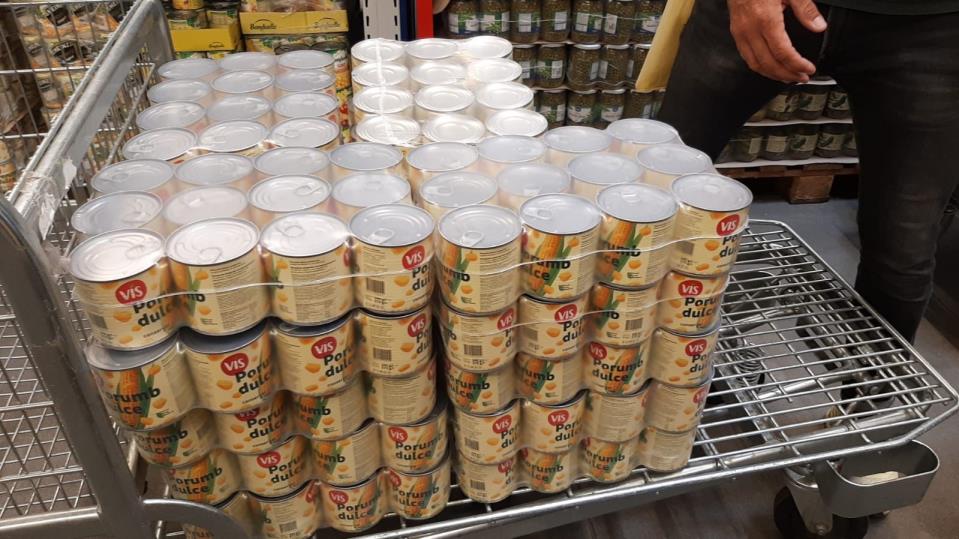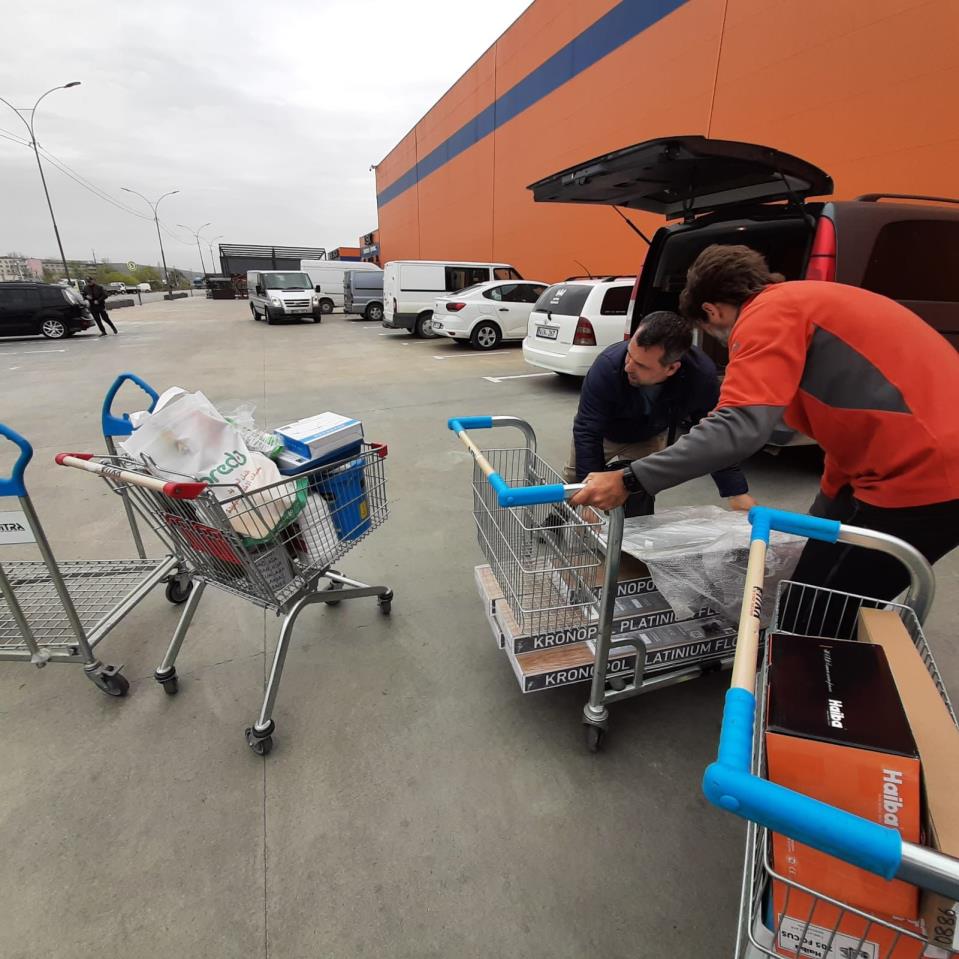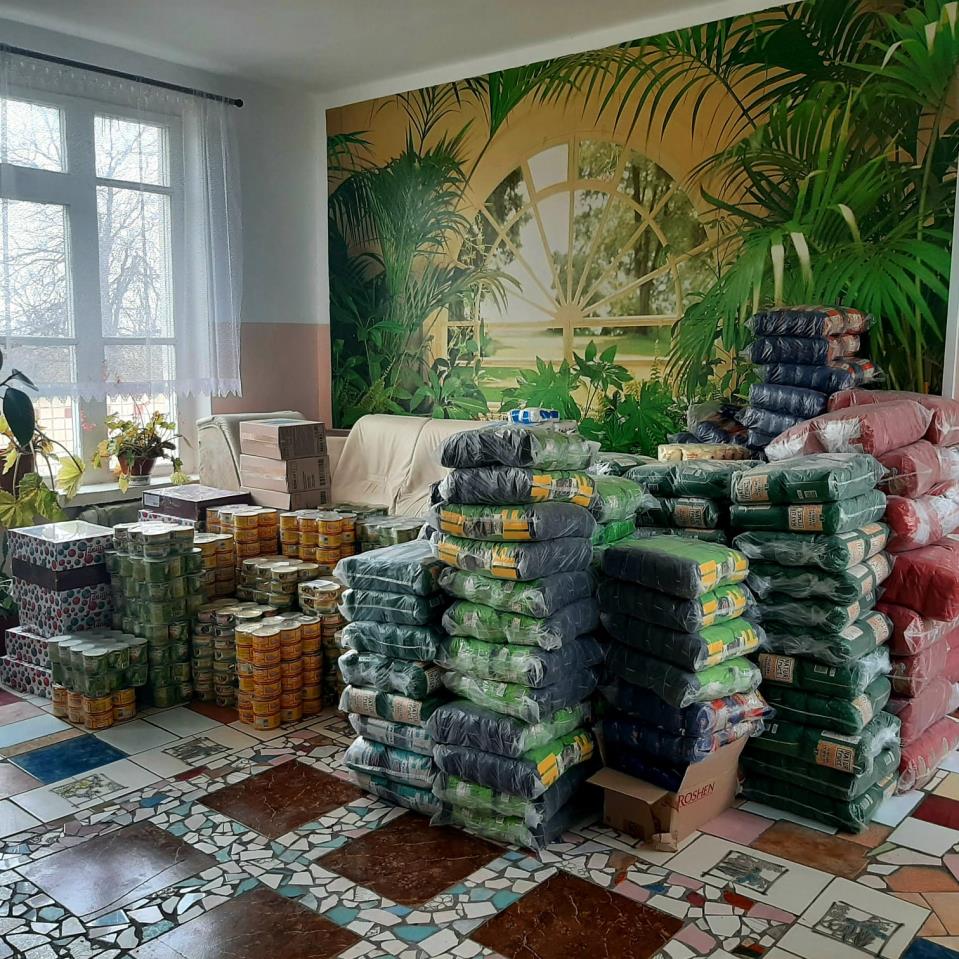Two Maltese citizens were in Moldova helping to build a centre to house Ukrainian refugees, while also delivering food to Odessa, in Ukraine.
Douglas Barbaro Sant and Lorna Borg travelled to Moldova, and through funds collected from family, friends and others who donated, they helped an organisation called Dancu Tabita (in Dancu, Moldova), expand a centre to house more Ukrainian refugees who were crossing the border in the hopes of finding a safe space.
“With the little they have in Moldova, they have done miracles,” Douglas and Lorna said of the Moldovans who are working on the project.
Douglas and Lorna, who are cousins, arrive back in Malta today, Sunday, after having spent two weeks there. They intend to continue supporting the Moldovan organisation.
Lorna, a nurse, had been contacted by a friend of hers who was doing humanitarian work in Moldova as a doctor and invited her to come along. She was unable to go at the time, but later spoke to her cousin Douglas, who works in event management, and together they decided to head off to Moldova. There, they found Dancu Tabita, run by a Baptiste Church, that was welcoming Ukrainian refugees.
"Originally we were collaborating with Team Humanity which focused on evacuations, but we wanted to go deeper, which is when we got in touch with Dancu Tabita," Douglas said. "We wanted to focus on long-term sustainability and saw how we could help with food and supplies. What the network of people have been doing since the war started is incredible. With the little they have here, they have done miracles.”
The first item on the agenda was improving the living quarters and the capacity of the centre in Dancu. Currently, it houses 40 refugees, mostly women and children, but the aim was to expand the available space to house 120 people. Works, they said, were underway while they were there. The funds needed for the completion of the centre have been collected "but then we need to gather funds to help house the refugees in the centre. The rough estimates are that every refugee will see costs of between €10 - €15 per day, depending on food and medicine donations. So if you have 100 residents that is around €1000 per day."

While raising funds for this, they also raised funds through their friends and family with which they were able to make large food purchases from a department store in Chișinău, which they then took to Odessa, in Ukraine, Lorna said.
As of Friday, they had purchased around seven tonnes of food that was delivered over a number of trips. Getting to Odessa and coming back is a 15 - 16 hour round trip, Douglas said. "We would load the trucks and vans and drive to Odessa. There is a Ukrainian NGO of which we met quite a few members. They are superheroes without capes - men and women who lived normal lives before, had normal jobs. They have a depot in Odessa where we would deliver the food. After they receive the food, they have a network of volunteers who take the food into the most devastated cities. The food went to Mykolaiv, which was flattened, and Kiev for example."
On one trip they made, they dropped off the food at psychiatric hospital in Odessa, Lorna said.
"Odessa is the last major city in the east which has not yet come under heavy attack. We saw smoke in the distance," Douglas said.
They were receiving donations through Revolut and BOV Pay, the details of which are available on their Instagram posts (Douglas: https://www.instagram.com/douglasbarbarosant/ and Lorna: https://www.instagram.com/truckinlorris/ . Donations can still be made). Douglas said that while in Moldova, they were purchasing goods directly. "We were physically purchasing the goods and items for the centre and for food deliveries to Ukraine ourselves with the donations we received.” Douglas said he will return to Moldova on a monthly basis and that he will use the donations he and Lorna receive to spend on items and goods to help refugees and send food to Ukraine when he heads back to Moldova.

Moldova was economically impacted by the war in Ukraine, they said. "The wood we needed to purchase to complete the rooms at the centre was brought in from Romania by the supplier we had, which cost more than when they would import from Ukraine. Coal is another issue. We were driving around to find coal for heating, but there is a shortage."
Moldova is a poor country, they said. "The way they have opened their arms to their Ukrainian neighbours is incredible. We've seen it here in the centre in Dancu. Dancu has an extremely poor community and yet they welcome anyone who comes their way," Douglas said.
"On one of our trips to Odessa, we evacuated a family, picking up a mother with six children,” Lorna said.
Douglas, Lorna and other volunteers would cross from Moldova into Ukraine to reach Odessa through Palanca, where they saw tents being prepared for refugees that are crossing. "As soon as you cross the border you feel the change."

"These people are going through daily trauma," Douglas added. "We were at the centre in Dancu the other day when a commercial aircraft flew overhead. The children who were out playing in the field just froze. Some then ran inside and others looked at us as though questioning what was happening. We didn't know how to react to that."
Asked about the situation in Moldova, they said that people are scared. "Odessa isn’t far from the Moldovan border and they are starting to fear the worst as well,” Lorna said.
Douglas explained that both he and Lorna have been involved in voluntary work across the planet. "What we are seeing here is very different. We've seen poverty, starvation, death in the past... but we've never seen such a mass exodus of people being affected by war. We have never seen the true effects of war before now. What we've seen in the media is a very good reflection of what is happening on the ground, but when you hear the many stories, see the physical and emotional pain behind it, it’s completely different."
There is also strength, they hold together, create networks, deliver supplies to dangerous areas," Lorna said. "They are normal men and women like those you would find in a normal Maltese community, and they are driving their vans with food to ravaged cities and war-torn areas where battles are still ongoing."